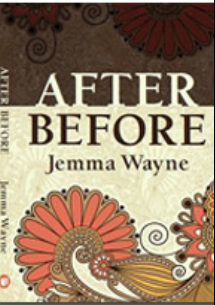
This novel addresses various other serious topics I’ve foisted on my blog readers. A diagnosis of terminal illness leads Lynn to confront her lack of fulfilment in the traditional women’s role of mother and homemaker:
new priorities constructed themselves around her. Their foundations rested robustly upon that single new word, wife, shooting taller with each passing month so that it became harder and harder to peer over them as they arched into a protective dome above her, their oculus, that ever-present possibility of another word, mother. (p90)
as she struggles to remain active in the process of her own death:
They talked about themselves. All three of them seemed united in this end, though the lunch had been, Lynn knew, a symptom of their guilt at the fact she was dying […] She should humour them, act the grateful parent, but she couldn’t help the surge of bitterness inside her […] Every now and then one of them […] made an inquiry into her health: was she experiencing any of those dizzy spells she’d been warned about yet, any sickness, any lethargy? This was the topic on which she was consulted, her illness, though even this was not something they considered her to be an expert in. They knew better it seemed. They were young, they’d been on the Internet, Googled it, had a better grip on these things (p198)
[the priest] conducted sermons now in modern language, trying to be accessible but Lynn thought him a tad foolish. There was little left in the bible she counted as true, no matter how you wrapped it up; better then to preserve its mystery so that other people wouldn’t also notice the contradictions, the false hope, the passivity of the teachings that had led her to this. (p88)
Emily also feels abandoned by God while Lynn’s elder son, Luke, like the characters in Alison Moore’s He Wants, “fills his void with Jesus” (p65). Like Claire in Carys Bray’s A Song for Issy Bradley, Vera is drawn to Luke because she perceives in the constraints of his religion (including the taboo on sex before marriage) the sacrifice that will assuage her guilt (p64).
While I admire the author’s courage in exploring these uncomfortable issues, I did feel that the novel would have been stronger if there were less of it. At just over 330 pages it’s not excessively lengthy, but I found myself reading with an imaginary red pen, scoring out in my mind redundant sentences and paragraphs that slowed down the narrative. Although the three strands are successfully interwoven (Emily becoming Lynn’s carer and Vera her prospective daughter-in-law) I wondered, as I had with Jill Dawson’s The Tell-Tale Heart, if it were one too many. Vera’s regret at how she managed an unwanted pregnancy, although poignant, seems slightly self-indulgent in a novel that attempts to bear witness to the Rwandan genocide in its twentieth anniversary year.
What do you think? Would you read a novel focusing on civil war atrocities? As a writer, have you ever tempted to cover too much?
This novel came to mind when I read the latest flash fiction prompt from Charli Mills to write a 99-word story on the subject of freedom. As for Charli, my inspiration came from an item on the local news but I’ll let you read it without any further introduction:
They stopped at the first layby after the ferry. Jack hopped out to fetch their fleeces, the fog thick as their dread of returning to deskwork after three months drifting across Europe like a couple of hippies. “Fuck me!”
Darren rushed round the back as a bedraggled figure staggered to his feet from under the dormobile. “How the …?”
“Must’ve tied himself to the axle at Calais.” Jack grabbed his phone. “Gotta report it. I’m not getting done for harbouring illegals.”
The man shivered. Darren wondered if it were fear or cold. “Gotta get him a cup of tea.”
I wanted to add a touch of compassion to the real-life version of this story which was reported with an emphasis on the inconvenience to the people returning home with unexpected baggage, while staying true to the reality of the refugee narrative, a theme I also addressed in my short story Stepping into Dan’s Shoes. Let me know whether it works for you.
| | Since no-one complained the last time I posted a Leonard Cohen song, I'm pushing my luck a bit further with Bird on the Wire; to my mind, a beautiful meditation on freedom. Thanks to Legend Press for my review copy of After Before. For another novel from the same publishers see my review of Linda Huber’s The Cold Cold Sea. |





















 RSS Feed
RSS Feed





















